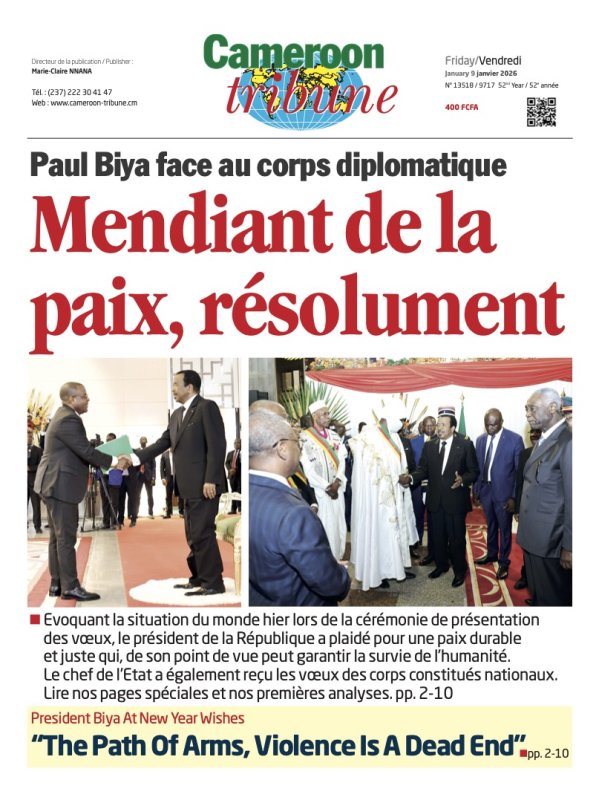FIFA World Cup : Africa Can Do It!
- Par Eldickson Agbortogo
- 19 Dec 2022 14:41
- 0 Likes
After several decades of participation in the final phase of the FIFA World Cup, African teams are now making their voices heard in the competition. From being butted out of the competition at the group stage in the 70s to moving to the knock-out stage in the 90s, Africa’s football dynamics are gaining steam. Instead of being mere participants, many of the teams and the entire continent now have a strong feeling that the dream of an African country lifting the trophy is not farfetched. In the past, winning the World Cup was an affair of European and South American nations. Both continents have won the competition 21 times. The last four champions have come from the northern hemisphere, giving Europe the edge over others. But Africa now believes it is time for the continent to break what seems to be a taboo by lifting the World’s most prestigious sports trophy.
For this to become a reality, the number of participating teams from Africa must increase. Of the 32 teams at the final phase of the competition, only five are from the African continent despite having 54 member nations in football’s world governing body (FIFA). The European continent, even though geographically smaller than Asia, Africa, North America and South America is represented by 13 teams, the highest number of teams throughout World Cup history. Asia typically has one slot less than Africa, but sometimes gets five places courtesy an intercontinental playoff that gives regions a possible extra berth. In the just-ended Qatar World Cup, football power house South America had four teams after only 10 teams jostled for the World Cup spots. The Confederation of North, Central America and Caribbean Association Football (CONCACAF) had four teams. This regional variations is a very big disadvantage for African countries in the World Cup matrix. It gives some teams easier chances for qualification and experiences from regular participations as compared to teams from other continents like Africa.
While it is unfair that a continent like Africa with 54 member associations should have only five places at the World Cup, it is absolutely imperative that African soccer managers put their house in order. In many African countries, stadiums are constantly being banned by FIFA and the Confederation of African Football (CAF) for not meeting key standards. It sounds funny to hear that a national team is going to play their home games away. Development is also a major pre-requisite to winning the World Cup. If Africa wants to mount the World Cup podium, they must train their players well. Invest a lot in development, so that the players can compete at the highest level. Security for spectators should improve, medical and technical facilities must be up to standard. Even though apart from the World Cup, African players have long been competing at the highest level in some of Europe’s best leagues and are constantly among the best players in those teams, representing their countries is a different ball game that many of them have never succeeded in fine-tuning a cohesive solution. Because putting up these individual performances at club level is not a guarantee of winning the trophy.
Before the start of the 2022 FIFA World Cup in Qatar, many pundits had been wondering if an African team can win the World Cup. Then, the only best records were that of Cameroon, Senegal and Ghana at the quarter-final. But now that an African team has reached the semi-finals of the competition, the perception of African teams has changed. Within the African continent and beyond, Morocco’s outstanding performance has boosted the morals of many countries and players. It is true that in the past, many sports analysts argued that the continent has always promised a great deal in the international showcase, but delivered very little due to; poor preparation, internal wrangling, bad disciplinary record, match bonus, technical and tactical errors at crucial moments and recruiting foreign coaches at the last minute. This time around, there is every reason to hope because there’s stability in many federations and coaching ranks. For the first time in the...
Cet article complet est réservé aux abonnés
Déjà abonné ? Identifiez-vous >
Accédez en illimité à Cameroon Tribune Digital à partir de 26250 FCFA
Je M'abonne1 minute suffit pour vous abonner à Cameroon Tribune Digital !
- Votre numéro spécial cameroon-tribune en version numérique
- Des encarts
- Des appels d'offres exclusives
- D'avant-première (accès 24h avant la publication)
- Des éditions consultables sur tous supports (smartphone, tablettes, PC)











Commentaires